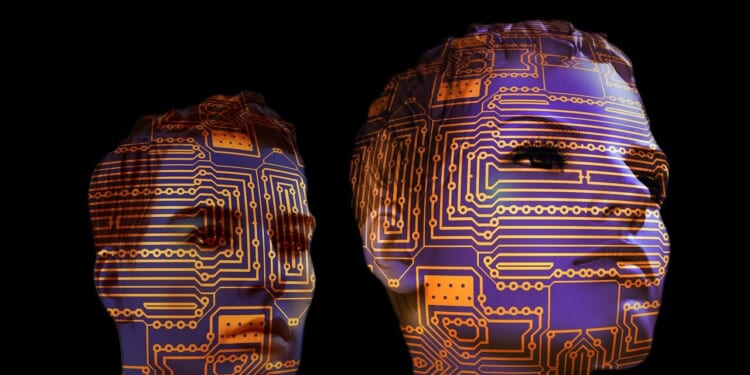Victoria Stratford is a postgraduate student at the University of Essex.
Keir Starmer’s latest proposal to introduce online ID verification via smartphones, dubbed as “Brit Cards”, is being pitched as a way to combat fraud and make digital services safer. However, underneath the polished political messaging, this plan is fundamentally flawed, misguided, intrusive, and poses a serious threat to the liberties and privacy that underpin British life.
First and foremost, the notion that every British citizen would be required to carry a digital ID on their phones immediately raises privacy concerns. We are being asked to entrust Starmer’s government with a record and digital footprint of our every online interaction, from shopping to social media use. In an age where cyber attacks are a daily reality, putting all of our personal data in a centralised app makes everyone more vulnerable to hacks, fraud, misuse, and even the potential of government overreach.
Starmer’s plan is not only misguided and dangerous but also poses the risk of creating a two-tiered society.
Not everyone, especially the elderly, own smartphones and they can often struggle to navigate digital platforms. For elderly people, or low income households, accessing essential public services could become unnecessarily difficult or even impossible. This could ultimately alienate a whole group of society, discriminating against those who cannot afford or access such technology.
Furthermore, fraud and identity theft are real issues that would pose a more significant threat with digital IDs on everyone’s smart phones.
However, handing the state access to our personal data is not the solution.
So much so, that all five of Northern Ireland’s main parties have unanimously rejected Sir Keir Starmer’s new scheme. The Good Friday Agreement allows people born in Northern Ireland to identify as British, Irish, or both. Starmer has said that any proposed changes would respect this agreement. First Minister, Michelle O’Neill, has called the plans “ludicrous, ill-thought out” and an “attack” on The Good Friday Agreement.
Also, it is unnecessary when you already need a national insurance number to work in the UK.
Therefore, the idea that this will prevent illegal workers in the UK, is void. Subsequently, the mandatory digital ID would make the British population reliant on a digital pass just to go about our daily lives which would inevitably change the nature of our relationship with the state.
Moreover, the erosion of anonymity that digital IDs would introduce is deeply troubling. In a democratic society, the right to privacy and anonymity — particularly online — is essential for free expression, dissent, and the protection of minority views. Forcing citizens to tie their real identities to every online interaction risks creating a surveillance culture, where people self-censor for fear of being monitored, flagged, or misinterpreted. It abandons open discourse and undermines the very freedoms we claim to uphold.
However, there is evidence to support this claim, proving that Starmer’s digital IDs pose a huge security risk as shown through the many drawbacks, misuse, and misapplications of Aadhar, India’s vast and controversial biometric database, which Starmer’s government approvingly and misleadingly endorsed in its press release announcing Brit Card. India’s Aadhar scheme – which holds the names, addresses, phone numbers, email addresses, retinal and finger-print scans of over a billion people – offers a worrying case study of what awaits those in the UK: mass surveillance, a denial of services to the elderly, compromised safety and security, and a fundamentally altered relationship between citizen and state.
It’s also worth questioning the motivations behind this sudden push. Is this really about protecting citizens, or is it a convenient way for the state to tighten its grip on an increasingly digital population? With the rise of AI and data analytics, is the governments racing to harness citizen data for predictive policing, algorithmic decision-making, and behavioural control. A mandatory digital ID system that lays the groundwork for precisely that kind of authoritarian drift.
To suggest that our security and prosperity depend on the introduction of a digital ID is completely false. We can improve online safety and combat fraud without bulldozing our rights in the process. Stronger data protection laws, better public education on cyber security, and investment in secure, decentralised verification technologies are all avenues worth exploring and none of which require turning every citizen to entrust all of their personal data in the government system.
In truth, the “Brit Card” is a solution in search of a problem. Instead of safeguarding democracy, it risks undermining it. Sir Keir Starmer may believe he’s modernising Britain, but in reality, he’s opening the door to a future where rights are conditional, privacy is optional, and liberty is just another tickbox in a government app.
Despite what Starmer might say, imposing a digital ID on Brits will not be a magical solution to all the country’s problems. Rather, the ‘Brit Card’ is more consistent with threatening the important values that underpin a free society, and poses serious risks to privacy, security, and equality, all of which are things that Briton’s pride themselves on.








![Florida Officer Shot Twice in the Face During Service Call; Suspect Killed [WATCH]](https://www.right2024.com/wp-content/uploads/2025/12/Inmate-Escapes-Atlanta-Hospital-After-Suicide-Attempt-Steals-SUV-Handgun-350x250.jpg)








